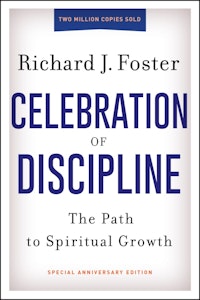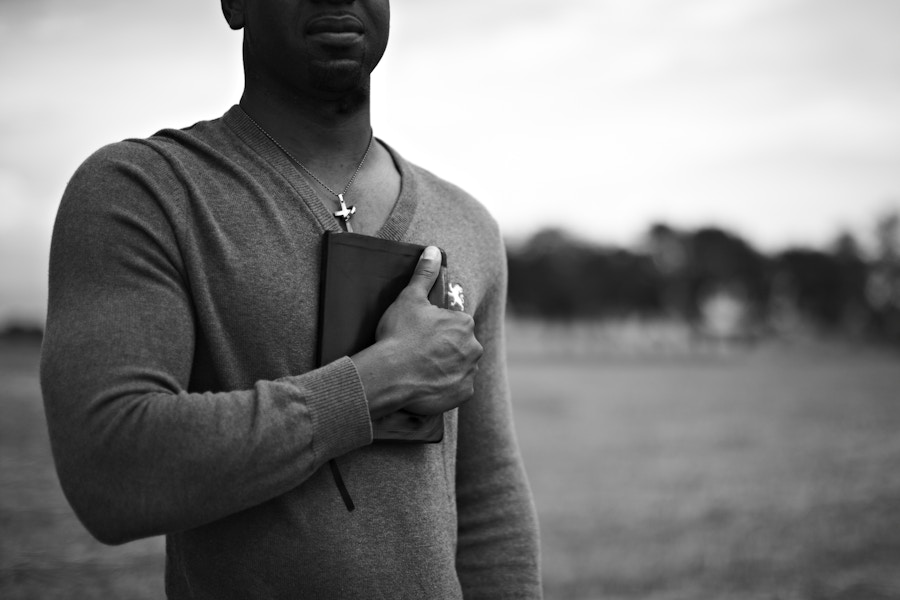 Excerpt from Celebration of Discipline
Excerpt from Celebration of Discipline
In the spiritual life only one thing will produce genuine joy, and that is obedience. The old hymn tells us that there is no other way to be happy in Jesus but to “trust and obey.” The hymn writer received his inspiration from the Master himself, for Jesus tells us that there is no blessedness equal to the blessedness of obedience. On one occasion a woman in the crowd shouted out to Jesus, “Blessed is the womb that bore you, and the breasts that you sucked!” Jesus responded, “Blessed rather are those who hear the word of God and keep it!” (Luke 11:27, 28). It is a more blessed thing to live in obedience than to have been the mother of the Messiah!
In 1870 Hannah Whitall Smith wrote what has become a classic on joyous Christianity, The Christian’s Secret of a Happy Life. The title barely hints at the depths of that perceptive book. It is no shallow “four easy steps to successful living.” Studiously, the writer defines the shape of a full and abundant life hid in God. Then she carefully reveals the difficulties to this way and finally charts the results of a life abandoned to God. What is the Christian’s secret to a happy life? It is best summed up by her chapter entitled “The Joy of Obedience.” Joy comes through obedience to Christ, and joy results from obedience to Christ. Without obedience joy is hollow and artificial.
To elicit genuine celebration, obedience must work itself into the ordinary fabric of our daily lives. Without that our celebrating carries a hollow sound. For example, some people live in such a way that it is impossible to have any kind of happiness in their home, but then they go to church and sing songs and pray “in the Spirit,” hoping that God will somehow give them an infusion of joy to make it through the day. They are looking for some kind of heavenly transfusion that will bypass the misery of their daily lives and give them joy. But God’s desire is to transform the misery, not bypass it.
We need to understand that God does at times give us an infusion of joy even in our bitterness and hard-heartedness. But that is the abnormal situation. God’s normal means of bringing his joy is by redeeming and sanctifying the ordinary junctures of human life. When the members of a family are filled with love and compassion and a spirit of service to one another, that family has reason to celebrate.
There is something sad in people running from church to church trying to get an injection of “the joy of the Lord.” Joy is not found in singing a particular kind of music or in getting with the right kind of group or even in exercising the charismatic gifts of the Spirit, good as all these may be. Joy is found in obedience. When the power that is in Jesus reaches into our work and play and redeems them, there will be joy where once there was mourning. To overlook this is to miss the meaning of the Incarnation.
That is why I have placed celebration at the end of Celebration of Discipline. Joy is the end result of the Spiritual Disciplines’ functioning in our lives. God brings about the transformation of our lives through the Disciplines, and we will not know genuine joy until there is a transforming work within us. Many people try to come into joy far too soon. Often we try to pump up people with joy when in reality nothing has happened in their lives. God has not broken into the routine experiences of their daily existence. Celebration comes when the common ventures of life are redeemed.
It is important to avoid the kind of celebrations that really celebrate nothing. Worse yet is to pretend to celebrate when the spirit of celebration is not in us. Our children watch us bless the food and promptly proceed to gripe about it — blessings that are not blessings. One of the things that nearly destroys children is being forced to be grateful when they are not grateful. If we pretend an air of celebration, our inner spirit is put in contradiction.
A popular teaching today instructs us to praise God for the various difficulties that come into our lives, asserting that there is great transforming power in thus praising God. In its best form such teaching is a way of encouraging us to look up the road a bit through the eye of faith and see what will be. It affirms in our hearts the joyful assurance that God takes all things and works them for the good of those who love him. In its worst form this teaching denies the vileness of evil and baptizes the most horrible tragedies as the will of God. Scripture commands us to live in a spirit of thanksgiving in the midst of all situations; it does not command us to celebrate the presence of evil.
Text First Published March 1976


